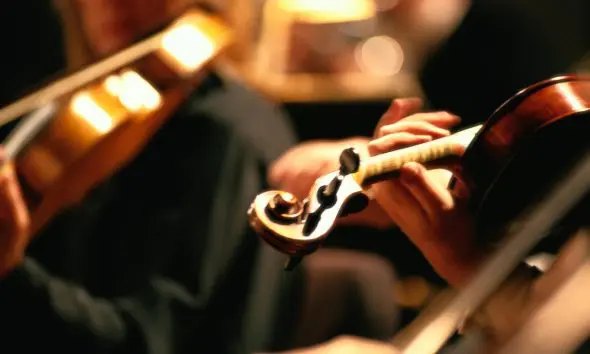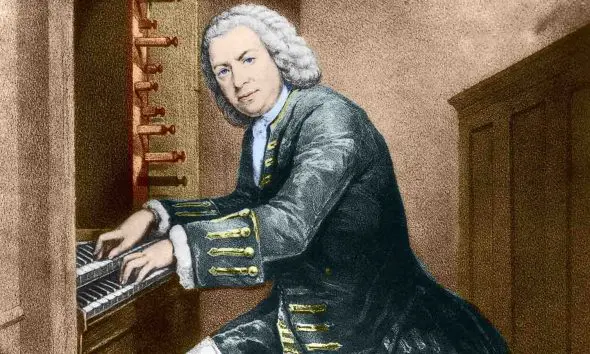Discover Beethoven’s ‘Emperor’ Piano Concerto
Discover the story behind Beethoven’s groundbreaking ‘Emperor’ Piano Concerto featuring Michelangeli’s legendary recording.

First, let’s scotch the title, or try to. Beethoven’s Piano Concerto No.5 seems inseparable from its nickname, the ‘Emperor.’ Its invention has been attributed to one Johann Baptist Cramer, a pianist, composer and publisher based in London who was friendly with Beethoven and probably knew the value of good marketing. Yet the word ‘Emperor’ carries resonances so far from the composer’s ideals that its attachment to arguably his finest concerto is almost laughable. Beethoven dedicated the ‘Emperor’ Concerto to Archduke Rudolph, a fine pianist, and the composer’s student as well as friend and patron, who was the soloist for the first performance on January 13, 1811, at Prince Lobkowitz’s palace in Vienna. The first public performance of the ‘Emperor’ Concerto was on November 28, 1811, at the Leipzig Gewandhaus, with Friedrich Schneider as soloist: here it made a powerful impression, with the Allgemeine Musikalische Zeitung reporting: “It is, without doubt, one of the most original, imaginative and effective, but also one of the most difficult of all existing concertos.”
Listen to our recommended recording of Beethoven’s ‘Emperor’ Concerto, performed by Arturo Benedetti Michelangeli, and the Vienna Symphony Orchestra conducted by Carlo Maria Giulini, on Apple Music and Spotify.
Discover Beethoven’s ‘Emperor’ Piano Concerto
Beethoven began composing his ‘Emperor’ Concerto in 1809, while Vienna was under invasion from Napoleon’s forces for the second time. In 1805 the French had left the city demoralized and its monarchy with only a rump of its former power. The self-appointed French ‘emperor’ had brought to an end the 1000-year-old Holy Roman Empire; the former Emperor Francis II found himself reduced merely to Emperor Francis I of the Austro-Hungarian Empire. Now, in the War of the Fifth Coalition, Napoleon was turning 20 howitzers against the city walls.
“The whole course of events has affected my body and soul”
Beethoven was living at the time in a top-floor apartment in an imposing block owned by Baron Pasqualati – right beside the ramparts. He had to seek shelter in the basement of his brother Kasper’s home, pressing pillows to his ears to protect any vestige that remained of his hearing. “The whole course of events has affected my body and soul,” he wrote. “What a disturbing, wild life around me; nothing but drums, cannons, men, misery of all sorts.”
It was not only his home and his hearing that were under threat, but his livelihood. Several years earlier, he had been offered a post as Kapellmeister in Kassel – where he would have worked for the puppet monarch Jerome, Napoleon Bonaparte’s brother. His Viennese patrons were aghast at the prospect. To stop him, a consortium was formed by three aristocrats, Prince Kinsky, Prince Lobkowitz and Archduke Rudolph: they determined to give him an annual stipend of 4000 florins, on the one condition that he remained living in Vienna.
But the expense of the war and the disastrous inflation that followed, devaluing Austria’s paper currency to about a fifth of its former value by 1811, ruined almost everyone. By the end of 1812, Lobkowitz had fled the city, pursued by creditors; Kinsky, having proved in any case an unreliable contributor, had been killed in a riding accident; the Archduke alone remained (and even he could not pay the full amount he had promised). It was to him – a fine pianist and the composer’s student as well as friend and patron – that Beethoven had dedicated the ‘Emperor’ Concerto.
Unlike Beethoven’s earlier piano concertos, No. 5 was published before being performed; also unlike the others, it did not serve as a vehicle for Beethoven himself. The composer, whose deafness had slowly worsened over the past decade, had been aware for years that someday he would no longer be able to perform his own works. The Archduke was the soloist for the concerto’s first performance on January 13, 1811, at Prince Lobkowitz’s palace in Vienna. The first public performance of Beethoven’s ‘Emperor’ Concerto was on November 28, 1811, at the Leipzig Gewandhaus, with Friedrich Schneider as soloist: here it made a powerful impression, with the January 1812 Allgemeine Musikalische Zeitung reporting: “It is, without doubt, one of the most original, imaginative and effective, but also one of the most difficult of all existing concertos.”
Carl Czerny, a student of Beethoven’s and later the teacher of Liszt, gave its official Viennese premiere early in 1812. Unfortunately, this occasion was a variety event staged by the Society of Noble Ladies for Charity, at which a lengthy, demanding piano concerto was not predisposed to success alongside three popular “tableaux vivants”. Beethoven’s ‘Emperor’ Concerto immediately preceded one entitled Esther Fainting Before King Ahasuerus.
The emperor of all piano concertos
Yet if we consider this work the emperor of all piano concertos, it would be with good reason, for its generous spirit, high energy, and unique character of form put it on a level of its own. The musicologist Donald Francis Tovey beautifully encapsulated the way that originality is embedded in the very heart of Beethoven’s writing here: “The orchestra is not only symphonic, but is enabled by the very necessity of accompanying the solo lightly to produce ethereal orchestral effects that are in quite a different category from anything in the symphonies. On the other hand, the solo part develops the technique of its instrument with a freedom and brilliance for which Beethoven has no leisure in sonatas and chamber music.”
Beethoven’s ‘Emperor’ Piano Concerto opens in a manner unprecedented in a concerto: a series of magnificent flourishes from the soloist in a type of written-out cadenza, set between imposing orchestral chords, before the main theme of the allegro has even been heard. When this arrives, it is a typically Beethovenian idea: punchy, memorable and simple enough to be full of potential for development. There’s a nobility of spirit to it, too, characteristic of Beethoven’s “heroic” period – the most intense and productive time of his output, extending from about 1803 to 1814. A substantial orchestral exposition sets out the principal ideas before the soloist joins in again; and now the relationship of piano and orchestra is not the classic “individual against the mass” notion of the romantic concerto, but a dialogue of equals. There is no other cadenza; indeed, Beethoven orders his soloists not to improvise one.
The slow movement, in the surprising key of B major (about as far tonally from E flat as it’s possible to go) offers a hushed, sublime opening on the strings; the soloist enters as if in a dreamworld, exploring the byways beyond the melody. The latter passes through a series of varied returns, ending with the piano weaving a web of accompaniment like a glimmer of starlight around the theme.
But all is not over. The music comes to rest on a low note, then slides down by a semitone. From this, the piano softly suggests a set of rising chords – from which the finale bursts into life with all colors blazing. This irrepressible rondo looks forward to the jubilant dance-rhythms of the Symphony No. 7 – and its upward-surging theme with tricky repeated notes almost nods towards the duet from Fidelio in which Leonore and Florestan are reunited: ‘O Namenlose Freude’ (‘O Nameless Joy’).
And so concludes Beethoven’s final piano concerto: not a regretful farewell from one whose legendary abilities at the instrument were foundering on the rocks of his deafness, but a surge of glory from a composer whose capacity for reinventing himself showed itself in every piece. “I shall seize fate by the throat,” he once wrote to his childhood friend Franz Wegeler. “It shall not wholly overcome me. Oh, how beautiful it is to live – to live a thousand times.” Perhaps to write joyfully despite his suffering was his ultimate means of defiance.




